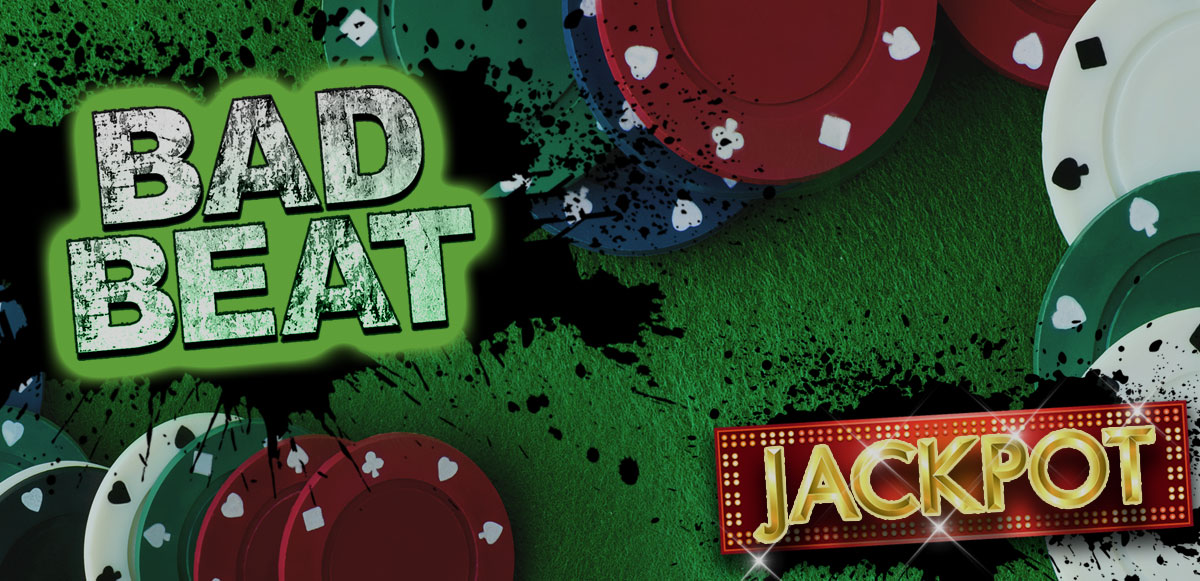Poker Hands Bad Beats

Imagine that you have a pair of Kings, the villain has a pair of Sevens. All the money in your respective stacks goes into the pot preflop. You’re overjoyed when the villain’s hand is revealed. You’re an 80:20 favorite to the win the hand…

…ah, but then the bad guy spikes a Seven on the turn, and your Kings go down in flames. Congratulations, you’ve just suffered a bad beat. You should be happy; losing to a bad beat is a sign that you’re making good, profitable decisions.
Why is this? First, recall that the definition of a bad beat is a hand in which you get your money in well ahead of your opponent (i.e., you have superior equity), but then the bad guy gets lucky and wins. Bad beats are also frequently called suck-outs. At the time they happen to you, you know exactly why they’re called this: they suck. Bad beats sting. Bad beats cause tilt. They make amateurs shake their heads, utter obscenities, and/or want to punch someone.
Why do I get so many bad beats?! When people talk about online poker being rigged the most common complaints I hear are a mathematically improbable amount of 'setups' (example: AA vs KK) and bad beats (example: you have AA, bad player with 74 offsuit hits two pair on the river). Here is a good example of a so called setup hand.
'Bad beat' is a term that can mean having an outstanding chance of winning a bet, only to still lose. The term can be used in any form of gambling but is most commonly applied to poker. Many poker rooms offer a progressive jackpot for very unlikely bad beats. Various other rules are added to ensure that only surprising bad beats win. The simplest definition of a bad beat is when a poker hand that is a favorite to win, loses to an underdog hand that catches up and beats it. Let’s say for example, in a typical no-limit hold’em game or no-limit hold’em tournament, you go all-in before the flop with the best possible hand at that moment: Ace, Ace.
But winning players feel differently. They do because they understand that the results of an individual poker hand do not matter. What does matter in a poker hand is whether or not they’ve made good, positive expected value decisions. What matters is whether they got their money in ahead or behind, or whether they folded when they should have.

In the KK vs 77 example above, the villain clearly made a big mistake getting all of his money in preflop with Sevens against your Kings. You, in contrast, clearly made an excellent decision. That’s all you can do in poker; make good decisions over and over again. If you do this enough times, you’ll make a lot of money at this game. Of course, you’ll occasionally lose to ugly suck-outs. And at the moment one of these bad beats happens, you may feel that you suffered an injustice.
Poker Hands Bad Beats Wireless Headphones
Okay, fine. Let that moment come and go. Then remember something very, very important: you played the hand correctly. You did everything you were supposed to do. Daniel Negreaneu himself could not have played the hand any better than you. In the long-run, you’ve won. Smile, you’ve had a bad beat. It may sting a bit, but it really is a good thing. It’s literal proof that you’re playing the game well.
Poker Hands Bad Beats

Poker Hands Bad Beats Headphones
Here are the other parts to this series on the three (good) ways to lose a poker hand:
Thanks for reading! I hope you found this article helpful. If you did, please consider Buying Me a (Virtual) Coffeeas this helps cover hosting fees and website costs.Thanks for your support!